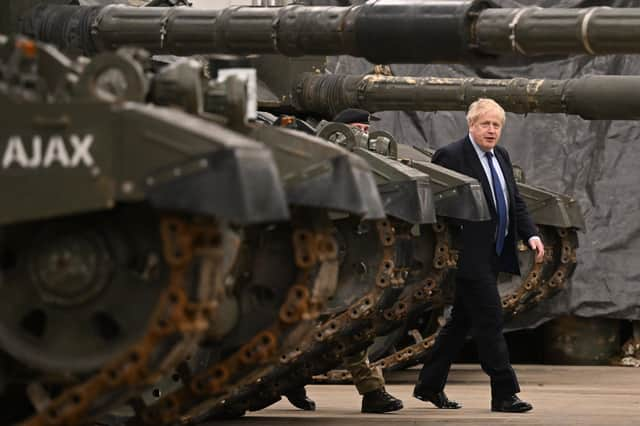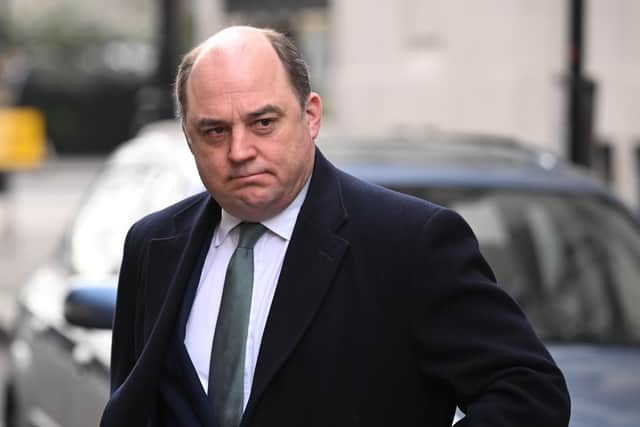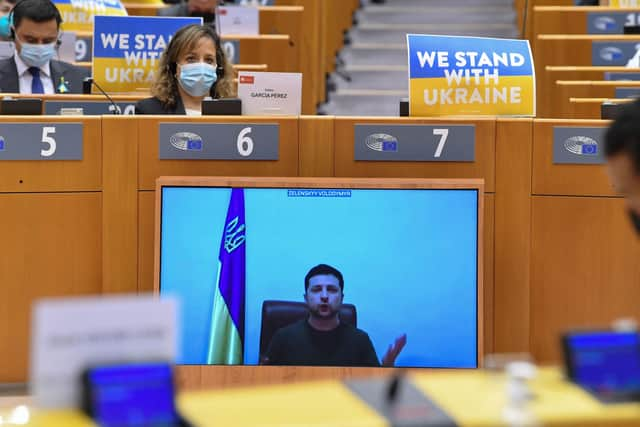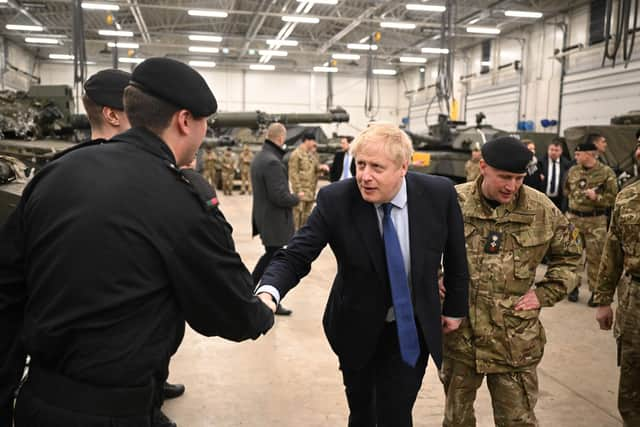Ukraine: Time for Army cuts to be reversed by Britain – Joseph Silke


Vladimir Putin has lived up to our worst fears about his capacity for wanton evil. The consequences of his imperialist megalomania are now being felt on the streets of Ukrainian villages, towns and cities, and in the suffering of Ukrainian men, women and children.
Western efforts to dissuade and threaten against a Russian invasion of its neighbour have been in vain.
Advertisement
Hide AdAdvertisement
Hide AdThis is not a new era as some have suggested: Putin invaded Crimea in 2014, and attacked other neighbours before that. The difference now is that the West is realising that it has been too complacent, too triumphant, and has failed to respond robustly to Russian aggression.


Strongmen only respond to strength, and soft power needs to be backed up by hard power, but the UK’s military capability has been dangerously eroded.
The Defence Secretary, Ben Wallace, who most agree has distinguished himself throughout the Ukraine crisis, suggested that “the Scots Guards,” his own regiment, “kicked the backside of Tsar Nicholas I in 1853 in Crimea – we can always do it again”. This is not only uncharacteristically facetious, it’s completely delusional.
Then Boris Johnson, in his address to the nation, declared: “Our mission is clear. Diplomatically, politically, economically – and eventually, militarily – this hideous and barbaric venture of Vladimir Putin must end in failure.”
Advertisement
Hide AdAdvertisement
Hide AdWhat additional aid the Prime Minister has in mind remains to be seen, but it will likely involve sending more British troops to Nato countries in Eastern Europe such as Poland and the Baltic states, as well as additional supplies for the Ukrainian resistance in the form of arms and armour.


The direct deployment of British troops on the ground in Ukraine remains off the table, but that doesn’t discount the possibility of a military confrontation between Nato and Russia, even an accidental one around the border.
Yet the UK is completely unprepared for a major conflict. Our armed forces have been gutted, with one in five infantry troops cut from the British Army since 2010. The Army’s entire active personnel, numbering fewer than 76,500 soldiers, can now comfortably fit inside Wembley Stadium. Russia, in comparison, has 900,000.
The size of the British Army has historically been relatively modest compared with other powers, but it is the smallest it has been for 200 years, and insufficient for what should be the second most important power in Nato after the United States. The broad consensus on confronting Russian aggression should lead to an unflinching confrontation of the threats we face from our adversaries, whether Russia, China, Iran, or hostile non-state actors like Islamist terror groups.
Advertisement
Hide AdAdvertisement
Hide AdIt is welcome for the Leader of the Opposition, Sir Keir Starmer, and the Liberal Democrat leader, Sir Ed Davey, to call on the Government to abandon plans to cut the armed forces yet again, down to just 72,500 soldiers by 2025. The Government should take this opportunity to announce the cut will not go ahead.


We have become too dependent on American budgets, which have undermined our operational independence, as exposed by the humiliating withdrawal from Afghanistan, despite the British desire to continue the mission. It has also driven an understandable American wariness of alleged European “freeloading”, which sat at the heart of former President Donald Trump’s lukewarm attitude towards Nato.
The UK does spend its allotted Nato target of two per cent of GDP on defence, but this is down from more than four per cent in 1991. We simply cannot hope to maintain our national security without proper investment. For too long, the defence budget has been the sacrificial lamb for other spending priorities, particularly massive increases in health spending. Now we are down to the bare bones, and all the more vulnerable for it.
The UK, and the Western powers, retain great strengths, and can prevail over those that would do us harm and overthrow our values, but we have been complacent for too long, particularly in the face of Russian aggression.
Advertisement
Hide AdAdvertisement
Hide AdWe must continue to support the Ukrainian people in their time of need, but we must also recognise that our own freedom and security in the UK is far from guaranteed unless we are willing to properly defend it.
Joseph Silke is a researcher at the Bright Blue think-tank which campaigns to defend and improve liberal society.
Support The Yorkshire Post and become a subscriber today. Your subscription will help us to continue to bring quality news to the people of Yorkshire. In return, you’ll see fewer ads on site, get free access to our app, receive exclusive members-only offers and access to all premium content and columns. Click here to subscribe.
Comment Guidelines
National World encourages reader discussion on our stories. User feedback, insights and back-and-forth exchanges add a rich layer of context to reporting. Please review our Community Guidelines before commenting.